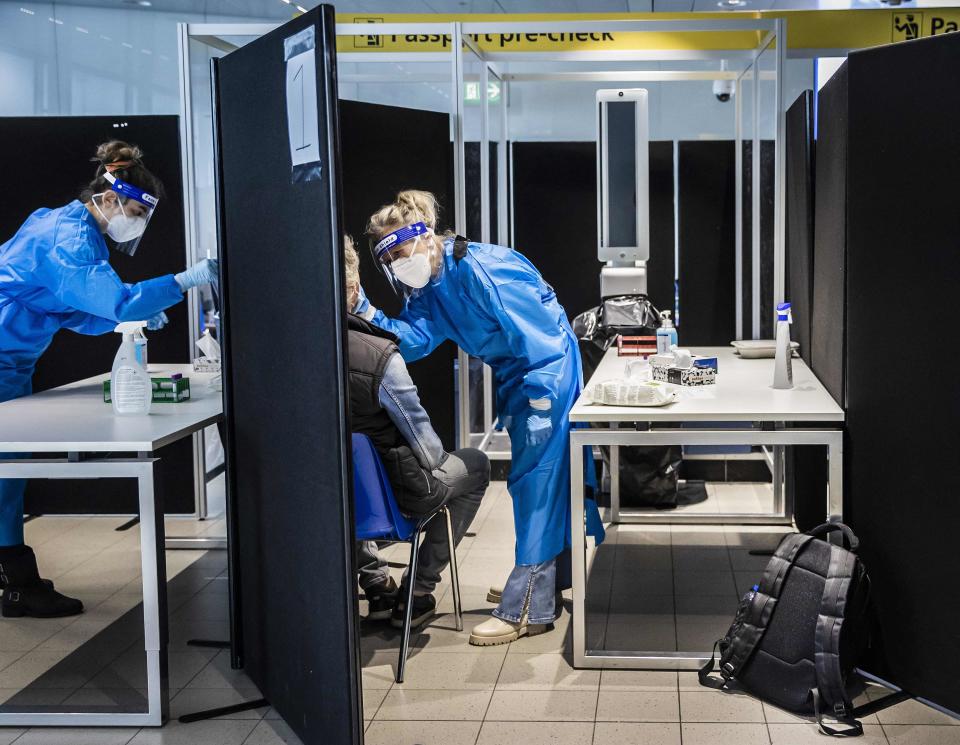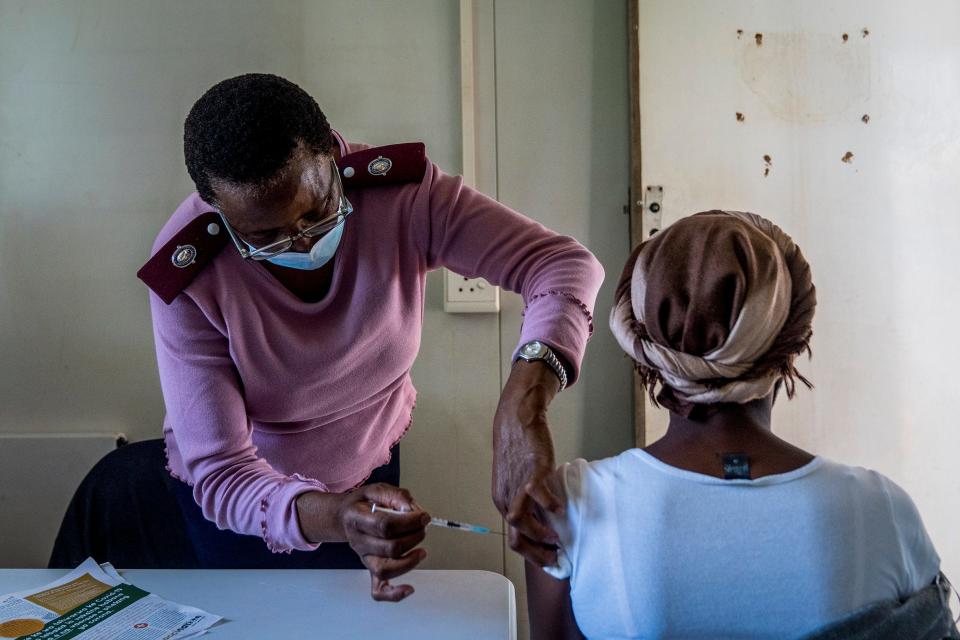Omicron's emergence demands global vaccination, which requires U.S. leadership
What was feared in the absence of widespread COVID-19 vaccination is precisely what's happened. The emergence of a new variant known as omicron is not only a cause of great concern, but also a clarion call to dramatically step up efforts to vaccinate the world.
It's a responsibility that cries out for American leadership.
Scientists are racing to determine whether the mutation is more virulent, more contagious and more resistant to current vaccines. Makers of the Moderna vaccine are already speculating omicron could be strong enough to warrant a new version of the shot.
The variant was found for the first time in the United States on Wednesday in California. Do Americans really want to go through all of this again – with the attendant lockdowns and school closures and economic disruption?
Maybe the world will get lucky and omicron won't be that threatening. In the meantime, the only way to break this cycle of ever-emerging variants – there was alpha in England last year, delta later out of India, and now omicron reported out of Europe and Africa – is to vaccinate the world. No one is safe until everyone is safe, proponents rightly assert.
Vaccination inequity
Nearly 70% of the population in the USA have received at least one COVID-19 shot, compared with only about 17% in Botswana – where scientists first detected the omicron variant.

And that's high for a continent with a rate of 10.5% partially vaccinated. In too many countries worldwide, vaccination rates are abysmally low. Those areas are prime for breeding new variants, and whatever arises will be destined for the United States.
What to do about it?
A prevailing narrative is that developed countries are too slow sharing vaccines or, worse, selfishly initiating a booster round while poor countries languish. And inequity does persist. Higher-income countries have promised nearly 2 billion doses, including more than half from the United States, and delivered only 20%.
Western experts have responded that there should be more than enough supply this year and next to inoculate the world, even given booster shots.
Delivering shots from airports to arms
A growing problem is in delivering shots from airports to arms. Indeed, five African nations have asked vaccine producer Pfizer to delay shipments because of distribution problems.
"We will stop seeing supply as a barrier pretty soon," Dr. Seth Berkley, a leader in a U.N.-affiliated effort to disseminate COVID-19 vaccines, told Axios.

Logistics for such a worldwide endeavor are enormous, with countless moving parts, according to Gian Gandhi, a coordinator for UNICEF, which handles a portion of the effort.
Challenges can range from a shortage of syringes, the acquisition of hyper-cold storage for vaccines, the training and payment of community volunteers delivering shots, to simply buying gasoline for trucks carrying doses into remote areas. Promised and purchased vaccines from various nations can arrive without adequate advance notice, each variety with its own set of protocols and training requirements. Added to this is the same kind of vaccine hesitancy and distrust of government that has plagued America.
It's a global effort in dire need of leadership only the United States can provide, working with leading industrialized nations. And it's why scores of scientists and knowledgeable groups have appealed to the Biden administration in recent months to take action.
Fortunately, there's already a blueprint on hand. With the President's Emergency Plan for AIDS Relief, or PEPFAR – created under George W. Bush and reauthorized under Barack Obama and Donald Trump – the U.S.-led leveraging of international partnerships proved to be the largest single global effort targeting a disease and saved an estimated 20 million lives.
Vaccinating the world against COVID-19 is the next great challenge, and America is the nation best equipped to lead the effort.
USA TODAY's editorial opinions are decided by its Editorial Board, separate from the news staff and the USA TODAY Network. Most editorials are coupled with an Opposing View, a unique USA TODAY feature.
To read more editorials, go to the Opinion front page or sign up for the daily Opinion email newsletter. To respond to this editorial, submit a comment to letters@usatoday.com.
This article originally appeared on USA TODAY: COVID variant omicron: America must lead in vaccinating the world

 Yahoo Movies
Yahoo Movies 
